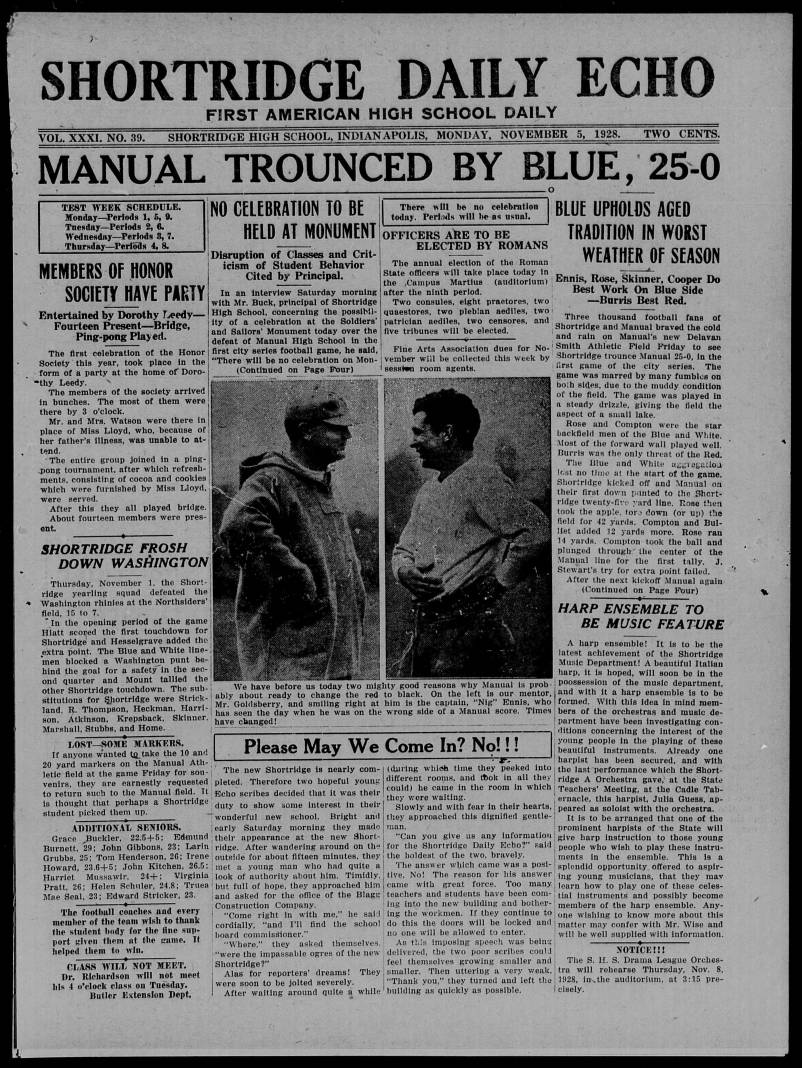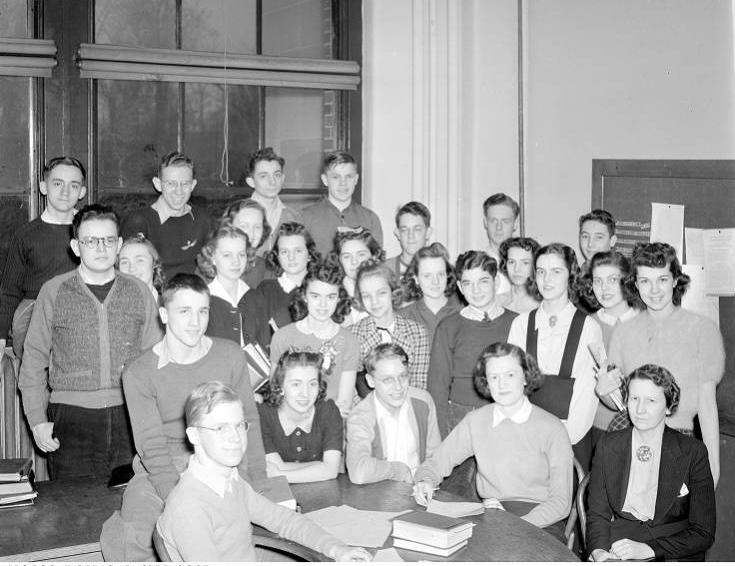The was the first and longest continuously published high school daily newspaper in the nation. It was established at Indianapolis High School in 1898, which changed its name to at the turn of the 20th century, and continued to be published daily until the end of the academic year in 1970.

Through the determination of a student, Fletcher Wagner, the newspaper emerged from two aborted attempts to create a daily paper—a fortnightly paper, , abandoned after seven issues, and , a weekly paper that lasted 21 issues. Wagner’s perseverance resulted in the launching of the on September 27, 1898. It consisted of one page with advertisements on the backside. Wagner and two other students served as the paper’s staff until their parents objected to their long working hours.
On November 3, 1898, production ceased. Following an all-school meeting held soon after the newspaper’s demise a committee of faculty and students purchased and managed a printing press. On January 16, 1899, the reappeared as a four-page publication with an editorial staff for each day of the week. The prospered as a daily for 72 years before the format changed during the 1970-1971 school year to an eight-page weekly. Former staff members included U.S. Senator ; authors , Dan Wakefield, Nikki Stoddard Schofield; and , co-creator of the TV series .

Publication ceased when Shortridge was converted to a junior high school in 1981. In 2015, Shortridge became an International Baccalaureate high school. At a time when student newspapers were disappearing across the country, Shortridge students and staff revived publication of the in late 2018.

Help improve this entry
Contribute information, offer corrections, suggest images.
You can also recommend new entries related to this topic.